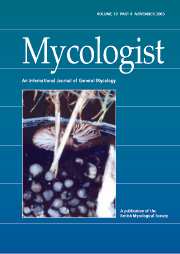Crossref Citations
This article has been cited by the following publications. This list is generated based on data provided by Crossref.
LaMondia, James
and
Timper, Patricia
2016.
Biology of Microfungi.
p.
573.
Karthik Raja, Ramalingam
Arun, Alagarsamy
Touray, Mustapha
Hazal Gulsen, Sebnem
Cimen, Harun
Gulcu, Baris
Hazir, Canan
Aiswarya, Dilipkumar
Ulug, Derya
Cakmak, Ibrahim
Kaya, Harry K.
and
Hazir, Selcuk
2021.
Antagonists and defense mechanisms of entomopathogenic nematodes and their mutualistic bacteria.
Biological Control,
Vol. 152,
Issue. ,
p.
104452.
Hazir, Selcuk
Touray, Mustapha
Cimen, Harun
Ulug, Derya
Hazir, Canan
and
Gulsen, Sebnem Hazal
2024.
Entomopathogenic Nematodes as Biological Control Agents.
p.
149.

